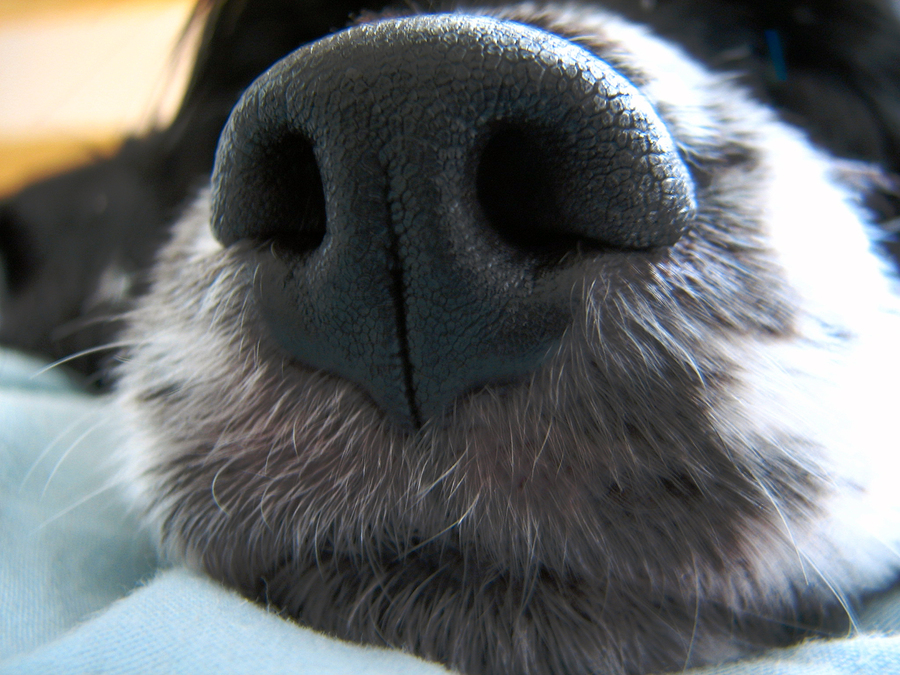Nosebleeds aren’t all that uncommon in people, but with dogs, it’s a different story.
One of my Facebook readers contacted me, asking if her dog’s sneezing and nosebleeds could be caused by allergies. I gave her my take on the possibilities:
Q: My dog has been sneezing a lot and sometimes he has nosebleeds for no apparent reason. Does he have a cold or allergies?
A: Even if he’s not a sniffer dog, a canine’s nose is his livelihood. Scent may well be a dog’s strongest sense, so good nasal health is essential to his well-being. The signs that something is wrong with the nose can range from frequent sneezing or discharge to bloody noses (what we veterinarians call epistaxis) and seizures.
We see several common nasal diseases in dogs. They include rhinitis, an infection of the nasal cavity; sinusitis, an infection of the sinuses that may accompany rhinitis; and Aspergillus, a fungal infection.
Signs of rhinosinusitis are sneezing, a bloody or mucouslike nasal discharge, and coughing from postnasal drip. Abscessed teeth can sometimes lead to rhinitis and sinusitis, especially in older dogs.
Aspergillus is a fungus that invades the nasal cavity. We see it most commonly in young to middle-aged dogs with long or medium-length snouts. Dogs with Aspergillus infections may have a heavy nasal discharge that contains mucus, blood or pus. Their nostrils can lose color, and the face appears to be painful.
Older dogs often develop tumors in the nasal cavity. The tumors may cause sneezing or sniffling, a runny nose or bleeding from one nostril. Some tumors can even block airflow, making it difficult for the dog to breathe.
Dogs who have snuffled up a foreign object into the nose usually sneeze violently, paw at the nose, and sometimes have a thick or bloody nasal discharge. Nosebleeds, discharge and excessive sneezing aren’t normal. Take your dog to the veterinarian at the first sign of irritation of that sensitive snout.
Read more, including about road safety when traveling with pets, in this week’s Pet Connection!
Do you have a pet question? Send it to askpetconnection@gmail.com!


